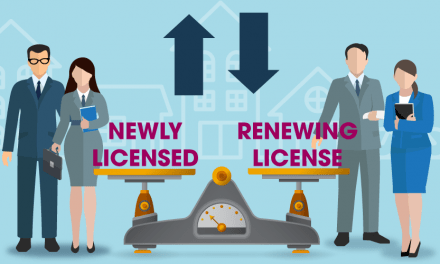This is the final episode in our new video series covering Implicit Bias principles, and provides a sneak peek into our new DRE-approved continuing education (CE) requirements that apply to real estate agents and brokers with licenses expiring on or after January 1, 2023.
This episode covers financial literacy as a requisite for equal ownership outcomes. The prior episode delved into positive practices to combat bias in hiring and marketing.
Education matters
Households from all walks of life ought to have an equal chance at homeownership.
However, the greatest obstacle many individuals face is a lack of financial acumen, which is usually built over years of exposure to different financial strategies and products.
California is one of just five states in the nation with no financial literacy
Without basic financial literacy required in school, there is a lot of catching up to do for clients seeking to become homeowners — especially when these clients have no family history of homeownership, as is significantly more likely for minority homebuyers.
Financial literacy teaches homebuyers how to elevate and maintain their credit scores, pay off debts and save — all crucial to qualifying for a mortgage.
Brokers who encourage their first-time homebuyer clients to ask questions will improve understanding and homeownership outcomes, while narrowing the financial literacy gap. Each time the agent or broker speaks with these clients, they ought to end each conversation with “and do you have any questions for me?”
Chances are, they will have many.
Likewise, brokers need to encourage all clients to ask questions of their lender. As the biggest financial investment of their lives, taking out a mortgage ought to leave the homebuyer with zero uncertainty.
While first-time homebuyers may naturally ask their broker plenty of questions, there are also numerous things they may not have the peripheral vision or experience to do know they need to ask about.
That’s where the broker’s initiative and intuition comes in.
Informing buyers of the additional costs of ownership
A first-time homebuyer client likely knows about how much cash on hand they need for a down payment. But some additional costs the broker may need to prepare first-time homebuyers for are:
- mortgage insurance — when the homebuyer has a down payment less than 20% of the home’s purchase price, they need to account for private mortgage insurance (PMI), and if they are very close to having a 20% down payment, it may be more financially advantageous to wait until they can save up the full down payment so they can avoid the extra monthly cost of insurance;
- closing costs — the client needs to know up-front they will need to set aside thousands of dollars just for closing, an amount which may impact their saving and buying timeline;
- the supplemental tax bill the homeowner will receive shortly after closing — a substantial cost the homebuyer needs to prepare for following closing;
- any initial repairs needed to make the home livable — when viewing a home that’s missing or in need of new appliances, fixtures or major repairs, the homebuyer can estimate how quickly these costs can add up; and
- the true costs of maintenance and upkeep — first-time homebuyers need to understand how much money they will need to budget for property maintenance and utilities, a lack of information best cured by asking the seller to fill out a property expense form. [See RPI Form 306]
Other aspects of the transaction the first-time homebuyer may be unaware of include:
- the time it takes to close — having never experienced a closing before, they won’t realize that it typically takes 30-45 days from their offer being accepted to closing;
- the home inspection — the buyer needs to make their offer contingent on a satisfactory home inspection, even if the contingency makes their offer less attractive to the seller;
- choosing homeowners’ insurance — required by the lender, the homebuyer needs to know they have options when choosing a homeowners’ insurance provider and that the costs can vary based on coverage and the provider; and
- the tax deductions available to homeowners, including mortgage interest deductions (MIDs) and deductions on property taxes and bonded assessments.
Being upfront with first-time homebuyer clients about these additional costs and transaction steps will avoid any confusion or surprise on their part.
This additional communication also improves homeownership outcomes, and of course, shrinks the homeownership gap.
Editor’s note – firsttuesday was one of the first schools in California to obtain DRE-approval for the new implicit bias training and expanded Fair Housing course.
To enroll, visit the order page.















The post is about the importance of financial management . Here is a quick guide on how to manage your Finances properly.For more details,Click here.